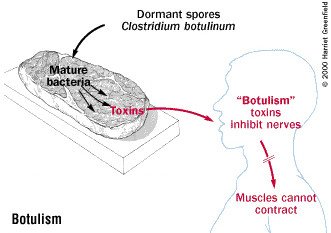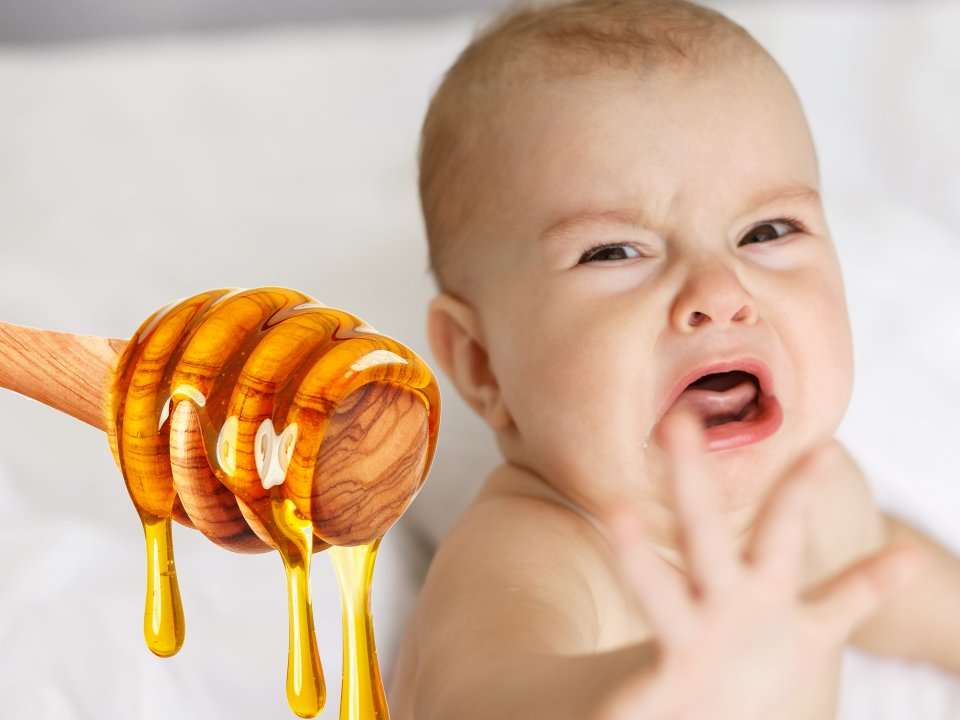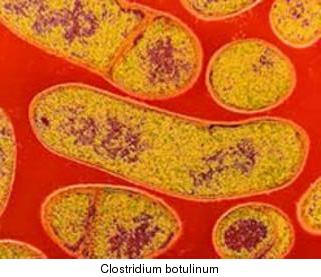botulism in babies timeline
Unlike food-borne botulism infant botulism is caused by ingestion of spores not by ingestion of a preformed toxin. Prior to the routine use of BIG-IV the total duration of hospitalization was 1-2 months for infants with botulism with an average of approximately 3 weeks of mechanical ventilation.

What Parents Need To Know About Botulism
This most common form of botulism begins after Clostridium botulinum bacterial spores grow in a babys intestinal tract.

. Infant botulism also referred to as floppy baby syndrome was first recognized in 1976 and is the most common form of botulism in the United StatesInfants are susceptible to infant botulism in the first year of life with more than 90 of cases occurring in infants younger than six months. The youngest reported patient was 2 weeks and the oldest was 12 months. The peak age of incidence is 2-4 months.
Causes of Infant Botulism Babies can get. The youngest reported patient was 2 weeks and the oldest was 12 months. Babies are at risk of infant botulism until they reach about 1 year of age.
Do not wait for laboratory confirmation to initiate consultation or treatment. Infants who acquire botulism range in age from six weeks to nine months with the peak incidence occurring at two to three months of age. Other signs of autonomic dysfunction usually present early.
These bacteria are harmless to older kids and adults. Older children and adults have natural defenses against colonization but infants younger than 12 months old dont have those defenses. For this reason experts advise that babies shouldnt eat honey until they are at least 1 year old.
Before their first birthday their digestive system has not become developed enough to. Infants who acquire botulism range in age from six weeks to nine months with the peak incidence occurring at two to three months of ageAbout 90 percent of infants with botulism are younger than. Babies are at risk of infant botulism until they reach about 1 year of age.
It may occur as early as early as 6 days and as late as 1 year. The disease results after spores of the bacterium Clostridium botulinum or related species are swallowed temporarily colonize an infants large intestine and produce botulinum neurotoxin. Infant botulism usually affects babies who are 3 weeks to 6 months old.
Infant botulism occurs mostly in young infants between 6 weeks and 6 months of age. All types of botulism can be fatal and are considered medical emergencies. Botulinum spores and subsequent.
Infant botulism most commonly affects babies 3 weeks to 6 months old but babies are at risk until they are 1 year old. Infant botulism results from the ingestion of the C. Temporary intestinal colonization by.
Infant botulism usually affects babies who are 3 weeks to 6 months old. About 90 percent of infants with botulism are younger than. It typically occurs in babies between the ages of 2 months and 8 months.
Constipation is the usual presenting symptom often preceding motor function symptoms by several days or weeks. The incubation period is 2-4 weeks. The source of the spores is usually unknown in most cases although some have been traced to.
Thats because their mature digestive systems can move the toxins through the body before they cause harm. Infant botulism occurs most often in infants 6 months. Title 17 California Code of Regulations CCR 2500 2593 26415-264320 and 2800-2812 requires that healthcare providers report known or suspected cases of infant botulism to the jurisdiction in which the patient resides.
Spore-forming obligate anaerobe Affects infants less than 1 year of age A rare disease but most common form of human botulism in the US for more than 30 years Symptoms include generalized muscle weakness with airway and swallowing difficulties. Infant botulism is the infectious intestinal form of botulism which results when swallowed spores of a particular bacterium Clostridium botulinum colonize the babys large intestine and produce botulinum toxin in it. Please report any suspect infant botulism case to your local health jurisdiction through appropriate channels.
Bacteria from the spores can grow and multiply in a babys intestines producing a dangerous toxin. What is infant botulism IB. Consultation Treatment and Testing Steps Infant botulism is a medical emergency.
Infant botulism most commonly affects babies 3 weeks to 6 months old but babies are at risk until they are 1 year old. The condition can occur in. Unlike food-borne botulism infant botulism is caused by ingestion of spores not by ingestion of a preformed toxin.
The type of botulism was undetermined in 39 cases. The neurotoxin binds to cholinergic nerve terminals and cleaves intracellular proteins necessary for acetylcholine release resulting in bulbar. Infant botulism occurs most often in infants 6 months.
Risk factors include swallowing honey as a baby being around contaminated soil and having less. Infant botulism is a rare but serious gastrointestinal condition caused by exposure to Clostridium botulinum C. Infant botulism usually affects babies who are 3 weeks to 6 months old.
Infant botulism is an intestinal toxemia. Botulinum toxin causes weakness and loss of muscle tone because it blocks the nerve endings ability to signal the linked muscle to contract. As noted above infant botulism is the most common type of botulism in the US with about 110 cases reported annually.
From 1973-1996 724 cases of food-borne botulism 103 cases of wound botulism and 1444 cases of infant botulism were reported. About 90 percent of infants with botulism are younger than. Wound botulism develops when clostridium bacteria gets into a wound and grows.
What is infant botulism IB. These bacteria are harmless to older kids and adults. Thats because their mature digestive systems can move the toxins through the body before they cause harm.

Vestavia Pediatrics Did You Know That Children Under 1 Should Not Be Fed Honey Honey May Contain The Bacteria That Causes Infant Botulism A Rare But Serious Illness The Experts At

Proximal Myopathy Anne Nurse Study Notes Muscle Weakness Nursing Study

Lizzie O Connor Ms Rd On Instagram A Baby Younger Than One Can Get Botulism By Eating Clostridium Botulinum Spores Foun Honey Clostridium Botulinum Spore

From Milk To Solids Baby Food Guidelines For The First Year Baby Food Chart Baby Food By Age Baby Food Recipes

Sengupta Hospital And Research Institute Infant Botulism Happens When A Baby Ingests Bacteria That Produce A Toxin Inside The Body Here Are The Symptoms Facebook
/babys-first-year-14-5b7c174cc9e77c0050bca8cc.png)
8 Month Old Baby Milestones And Development

Four Infants Hospitalized For Botulism After Using Pacifier Funny Pictures For Kids Pacifier Infant

Welcome To The Infant Botulism Treatment And Prevention Program

What Parents Need To Know About Botulism

Babydoc Club Uk New Parents Did You Know Sweet Honey Can Be Harmful For Baby Yes It S Yummy In Porridge But Has Been Linked To Rare But Serious Infant Botulism The

Botulism Guide Causes Symptoms And Treatment Options

Babies Can T Eat Honey Because It Can Cause Infant Botulism Here S What That Means Business Insider India

